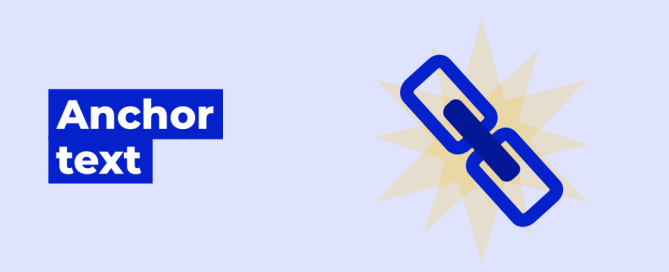Use Natural Anchor Text to Reap Rewards
Natural anchor text is not forced.
How many of you hate those over optimized pages? You know, those website pages where you see bold, underlined clickable link words every third or fourth sentence?
Those hyperlinks are called anchor text, and they serve a purpose. Usually a copywriter will insert anchor text by means of keywords to serve as an authoritative reference (an outbound link to another site) or get a backlink (inbound link to the site’s own webpage or an enticement for another site to link to the page).
Links are beneficial, but it’s important not to forget Google’s Panda and Penguin updates when you’re using anchor text. The goal of anchor text should not only be increasing search engine result rankings, but to enhance visitor experience. In other words, make it easy for whoever visits your webpage to find the information they need. Providing additional information reinforces your own reputation as an expert.
The objective of the search engines updates is to return only highly relevant pages when the keywords are typed into the browser. Using links helps make search engines aware that your page is pertinent to the search. Links also allow your visitor to find more detailed info about the subject or where to buy a product when they land on your page.
But what you really want to know is what is meant by natural anchor text. The easiest way to explain natural anchor text is that it looks like an ordinary person inserted the links, not an SEO professional. A webpage not chock full of hyperlinks is a sure sign that either a neophyte wrote the content or a very skilled SEO guru did, because search engines penalize for over optimization.
Natural anchor text links only to relevant pages. Look at it this way. If you’re writing a research paper, you prepare a bibliography of all the sources you used listed at the end of the paper. Instead of having a bibliography in website content, you just use a hyperlink reference in the content.
For example, if you’re writing an article or blog on the best doggie treats in the world, you would not embed a link to kitty litter using best doggie treats. Kitty stuff is not related to doggie treats. They are two different animals. Search engines don’t like bait and switch tactics, and your site will receive a severe reprimand.
The next logical question about natural anchor text would be which keywords to use for your link. Again, use only keywords relevant to your site, have plenty of daily searches, and potential visitors might use the words to find you. If you use the Google AdWords keyword tool, you can sort by relevance and use the top 3 keywords if they fit with both your site and your article or blog main keyword.
And finally, the reward part. Natural anchor text keeps your webpages and blogs relevant to whatever the user types in the search box. When you’re relevant, both the search engines and your visitors will love you. When your visitors find the information they need, they will usually reward you with a conversion.
Natural anchor text is all about customer satisfaction. Nothing more, nothing less.
Directory One, a Houston SEO firm, is all about customer satisfaction. See how they can help your website produce the results you want by calling (713) 465-0051.

